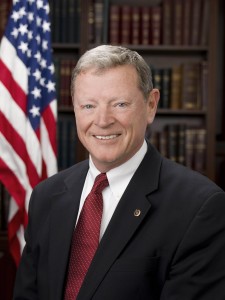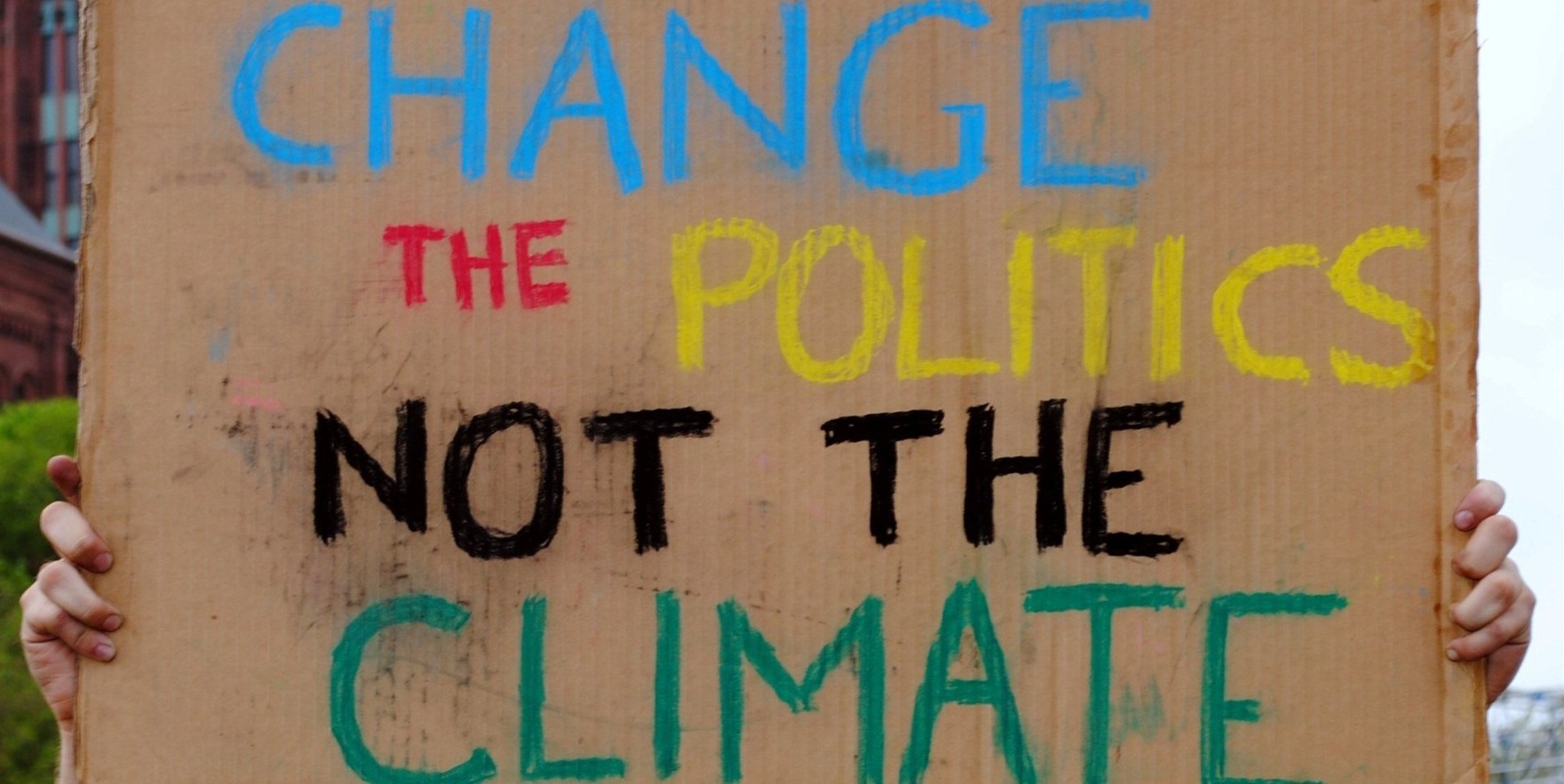When “An Inconvenient Truth” came out in 2006, introducing the severity of climate change to a mass audience, it seemed like the new buzz surrounding the issue had jolted the world into action. It was an uphill battle, but people on both the left and the right were willing to fight it, and the media was willing to report on it. Eight years later, climate change is no longer a trendy issue. However, science tells us that it should be. The political discourse in America shifted from “what are we going to do about it?” to “is it really happening?” Even politicians on the left are unwilling to stake their political capital on it, at least not on the national stage. Although still a major concern on college campuses such as this one, climate change has been the subject of increasingly less attention by the mainstream media and even less attention by politicians in Washington. While the political momentum has ceased, global and national energy policy only serve to augment the problem and make the goal of averting climate change an even more unrealistic fantasy.
There were reasons to hope that the United States would act on climate change during the latter half of the 2000s. Prominent Republicans like John McCain, Newt Gingrich and Lindsey Graham adopted climate change as a core issue. Few political junkies can forget the now infamous ad featuring Nancy Pelosi and Newt Gingrich sharing a couch, discussing the importance of bipartisan action on climate change. By the end of the decade, however, recession woes and the Tea Party take-over of the GOP were already diluting the political will to act on the issue. In a couple of years, Washington discourse on global warming went from disagreement on how to solve the issue to one party wholly rejecting its existence. Gingrich has since described the ad as “the dumbest single thing I’ve done in years.” He is but one of the many Republicans who have backpedaled on climate change since it ceased to be trendy, stating on record during the 2012 primaries that “it hasn’t been totally proven.” Lindsey Graham co-authored a climate bill with Joe Lieberman and John Kerry, and ultimately ended up voting against it, justifying his flip-flop by arguing that “the science about global warming has changed.” Mitt Romney is yet another prominent Republican who has been inconsistent on the issue. He recognized the reality of anthropogenic global warming in his 2010 book No Apology, but backtracked during the 2012 presidential campaign when he stated in a town hall meeting that “we don’t know what causes climate change on this planet and the idea of spending trillions of dollars to try and reduce CO2 emissions is not the right course for us.”
Luckily for him, Romney was not made to clarify his position over the course of the campaign. The presidential debates that took place in the last election cycle were the first since 1988 in which climate change was not brought up. Ironically, we know much more about the severity of climate change, and what is causing it, today than we did then, when it was already an issue of concern to both candidates. In fact, climate change was mentioned at the pulpit only once during the past presidential elections. This was during Mitt Romney’s acceptance speech at the Republican National Convention, when he joked about Obama’s ambitions to “stop the rising of the seas and heal the planet.” Obama only spoke of climate change at the pulpit during his victory speech, as if he could only afford to mention the subject when there was nothing more at stake.
So what accounts for the decline of climate change in the hierarchy of political issues, and the reluctance of politicians on both the left and the right to campaign on it? The easy answer is the economy. The global recession is perhaps the biggest obstacle to progress on climate change. The perception that climate change legislation will cost jobs and increase energy prices is a prevalent one. In an election that was all about job creation, it’s no surprise that candidates chose to shy away from the topic. Debate on energy policy in 2012 was essentially a dispute over which candidate liked coal the most, and who would open up more lands for drilling. The idealistic Obama, who promised to make climate change a priority of his administration in 2008, was nowhere to be seen in 2012. Growth, jobs and the deficit are the issues that have dominated political discourse since 2008, leaving little to no room for debate on climate change.

Another reason could be that misinformation on climate change has done much to increase the number of climate skeptics. Somehow the debate has shifted from the best way to approach the climate crisis to whether there is a crisis at all. Today, the United States is the only country in which the prevalent view among a major political party is that climate change is a hoax. It is not the fringe that refutes climate science, but the mainstream, hence it becomes legitimate for respectable politicians to disagree with the 98 percent of climate scientists who believe that the world is warming and that humans are to blame for it. Denying the existence of climate change has, in a way, become a conservative cause in and of itself. Senator James Inhofe made a point of going all the way to Copenhagen during the COP15 summit, in a self-titled one-man truth squad, to present “another view” on climate change. Pundits like Bill O’Reilly and Sean Hannity love to laugh off the threat of global warming whenever an especially intense snowstorm hits the United States. When a record-breaking typhoon hits the Philippines, or an unprecedented hurricane hits New England, however, the link to climate change is overlooked.
As climate skeptics are legitimized, so too are politicians like Inhofe. Impassioned attacks on climate change have become commonplace in Congress. Statements like “carbon dioxide is a natural byproduct of nature” (Michelle Bachman) and “tell a plant how dangerous carbon dioxide is” (Rick Santorum) have been used as legitimate critiques of climate science, sometimes expressed on the House and Senate floors. The level of debate on climate change has stooped to such a low among the political right in the United States that substantive discussions regarding possible solutions are nonexistent. It is difficult to debate against those who do not accept basic facts.
Despite the lack of political debate on even the most moderate climate legislation in Congress, the Obama administration has made some progress. Carbon dioxide has been classified as a pollutant, giving the Environmental Protection Agency (EPA) authority to regulate it, although it has chosen not to up to this point. Perhaps the greatest achievement of this administration with regards to climate change has been setting new mileage standards for American cars — no doubt an important step in reducing emissions but far from what is required if the United States is to take the climate crisis seriously.
As the leaders of the largest carbon emitters in history, American politicians are holding the world back from solving the climate crisis by not acting on the issue. Minor progressive measures are taken on the national level, and a little more is done on the state level, but for every step the United States makes towards solving climate change, it takes a few back. By the time Obama leaves office, the United States will surpass Saudi Arabia as the largest producer of oil, and Russia as the largest producer of oil and natural gas combined. National consumption may be cleaner, but as American exports of hydrocarbons grow, we are delaying a global transition to a cleaner economy and enabling other countries to pollute. As Bill McKibben recently put it in a Rolling Stone piece, “it’s like eating a pan of Weight Watchers brownies after you’ve already gobbled a quart of Ben and Jerry’s.”
While debate is stalled, public interest wanes and the president tries to please environmentalists and the fossil fuel industry in one fell swoop, climate change is in full swing. The world is getting hotter, summer sea ice becomes smaller every year and extreme weather events become more frequent. These are facts. At this point the possibility of averting climate change is long gone. World leaders admitted as much when they non-bindingly agreed to limit warming to two degrees Celsius at the COP15 Conference in Copenhagen, which sets a clear cap on how much carbon the world can still afford to burn. All we can do at this point is control the damage. The sooner politicians accept these facts, and the country responsible for the greater historical proportion of carbon emissions is able to have a substantive debate on the issue, the more effective the damage control will be. Climate change should not be a trendy topic. It should be a permanent one at the center of the political agenda.

FORMER climate blame “believers” are the real progressives for they know that one can’t find (prove us wrong) a single IPCC warning that “believes” beyond; “could be”, but they “believe” evolution and smoking causing cancer and comet hits WILL happen? But their own comet hit of an earthly emergency just “could” happen? Their 32 year old “maybe” crisis is dead and if you are a real planet lover then be happy a crisis was thankfully a tragic exaggeration.
And get up to date;
*Occupywallstreet now does not even mention CO2 in its list of demands because of the bank-funded and corporate run carbon trading stock markets ruled by politicians.
*Canada killed Y2Kyoto with a freely elected climate change denying prime minister and nobody cared, especially the millions of scientists warning us of unstoppable warming (a comet hit).